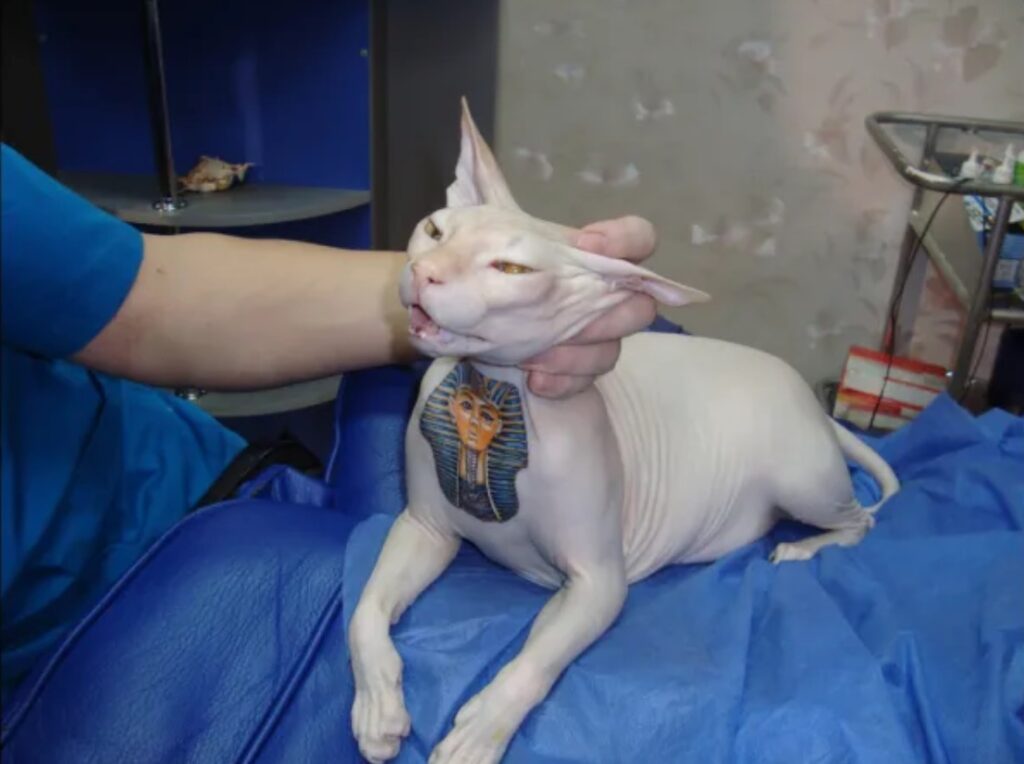Brazil Draws Ethical Line as Pet Humanization Hits Inked Extreme

Brazil has drawn a crimson line through one of the stranger corners of the pet-care boom, voting to jail anyone who tattoos or pierces a dog or cat. Admirers call it overdue mercy; skeptics see it as a warning about misplaced devotion.
From Instagram Outrage to the Chamber Floor
On a sweltering afternoon in 2022, a São Paulo groomer live-streamed her latest “art”—a Shih-Tzu sedated on a table while tiny hearts were inked along its flank. Within hours, the clip ricocheted across social media, gathering millions of horrified views and a police force visit that ended—much to public disbelief—without charges. “There was no law specific enough,” recalls Congressman Fred Costa, who kept the video on his phone every time he pitched his anti-tattoo bill to colleagues.
Five draft versions and countless committee hearings later, the measure passed both houses almost unanimously. Cosmetic tattooing or piercing companion animals is now a crime on par with mutilation, punishable by up to five years behind bars, steep fines, and loss of custody. Municipal ordinances in São Paulo, Rio, and Brasília had issued monetary penalties before. Still, judges complained they had no authority to confiscate abused pets or keep repeat offenders out of business. The national statute closes that loophole.
It also arrives amid staggering numbers: Brazil is home to an estimated 160 million dogs, cats, parrots, and pocket pets, nearly one animal for every resident. Only the United States and China host larger populations. With that affection comes an unregulated market of pop-up salons and “alternative” veterinarians willing to blur ethical lines for the sake of likes and revenue. The new law tells them the party is over.
Latin America’s Deepening Love—and Its Dark Edges
Walk any shopping mall in São Paulo, and you will pass pet bakeries selling pâté-flavored cupcakes, boutiques with rhinestone collars, and strollers designed for pugs who “don’t like asphalt.” Market researchers say three of every four Latin Americans now call their pets sons or daughters, a figure higher than in North America or Europe. Humanization has lifted regional pet industry sales to nearly US $200 billion a year despite inflation and wage stagnation.
Yet the same surveys flag an uncomfortable tension. Veterinarians warn of obesity from birthday cakes, anxiety in dogs wheeled around like dolls, and a surge of cosmetic fads—neon fur dyes, crystal ear studs, tail gems—marketed as expressions of love. “Anthropomorphism can cross the line from cute to cruel very quickly,” explains Dr. Rita Valença, a behavior specialist in Recife who treats lapdogs so coddled they panic when left alone for ten minutes. Her clinic now runs a workshop bluntly titled “They Are Dogs, Not Babies.
The tattoo episode exposed how far the trend had drifted. Unlike debatable practices such as nail polish or temporary dye, permanent ink requires anesthesia and needles driven through skin designed for fur, not art. Veterinary boards testified to Congress that infection, chronic pain, and behavioral trauma were common side effects—all for photos that rack up clicks and disappear in twenty-four hours. The bill’s backers framed the procedure as the ultimate symbol of projecting human vanity onto beings who cannot refuse.

Balkanpix.com
A Legal Line That Could Redraw the Map
Critics of the statute insist it is symbolic when Brazil still struggles with routine cruelty: chained backyard dogs, unchecked breeding mills, and tens of thousands of street animals in every major city. “Prosecutors will not find many tattooists, but they’ll trip over cases of starvation,” argues attorney João Barreto, who defends low-income owners fined for neglect. Even some animal welfare NGOs quietly admit the law targets a niche problem.
Yet symbolism, legal scholars note, is precisely the point. Creating a hierarchy of protections—first banning the most gratuitous harm—helps courts and citizens recognize animals as more than property. Brazil has already upgraded severe abuse to a felony; the tattoo statute extends that thinking into the realm of “aesthetic violence.” Neighboring Chile and Colombia, both confronting their social-media scandals (remember the pierced kittens of Medellín), are drafting similar bills. The United States barred pet tattoos a decade ago; the European Union is considering union-wide guidelines.
Economic ripples may follow. Grey-market grooming parlors, which often double as unlicensed breeders, could face tighter inspections. Legitimate pet spas are scrambling to show compliance, betting that consumer trust means more in the long run than outlawed gimmicks. Economists at the Federal University of Rio de Janeiro predict the clamp-down will professionalize the sector, nudging owners toward certified vets who can upsell preventive medicine instead of piercings. That shift might finally channel Brazil’s R $60 billion pet economy into dog parks, vaccination drives, and shelter adoptions—investments with clear welfare dividends.
How Much Love Is Too Much Love?
Brazil’s new line in the sand forces a broader conversation: where does caring end and coercion begin? Humanization has undeniable upsides—better food, stronger anti-cruelty laws, and growing acceptance of pets in apartments and offices. But it also breeds contradiction. Latin America records some of the world’s highest abandonment spikes whenever a recession hits, suggesting that the same people who dress Chihuahuas in designer hoodies may surrender them when rent is due.
The challenge is translating affection into respect, guided by biology rather than Instagram trends. Veterinary councils are distributing posters reminding owners that dogs see the world 75 percent through scent, not sight; cats crave vertical territory, not couture. Universities have begun pairing animal ethics courses with entrepreneurship degrees so future business owners can innovate without exploitation.
Most of all, the law invites a cultural pivot. Instead of asking, “How can my pet enhance my image?” Brazilians are urged to ask, “What does my animal need?” Good food, exercise, species-appropriate play, medical care—none requiring needles full of ink.
Also Read: Argentina’s Peronists Grapple with Renewal as Kirchner Faces Prison and Exile
Therefore, Brazil’s tattoo ban is more than a quirky headline; it is a mirror held up to a continent in the throes of pet devotion. In that reflection, owners will see either a compassionate guardian or a well-meaning narcissist. The choice, now etched in federal statute, belongs to every household that claims a wagging tail or rumbling purr as family. The hope—among vets, lawmakers, and the silent millions of animals—is that love, once informed, will choose wisely.





